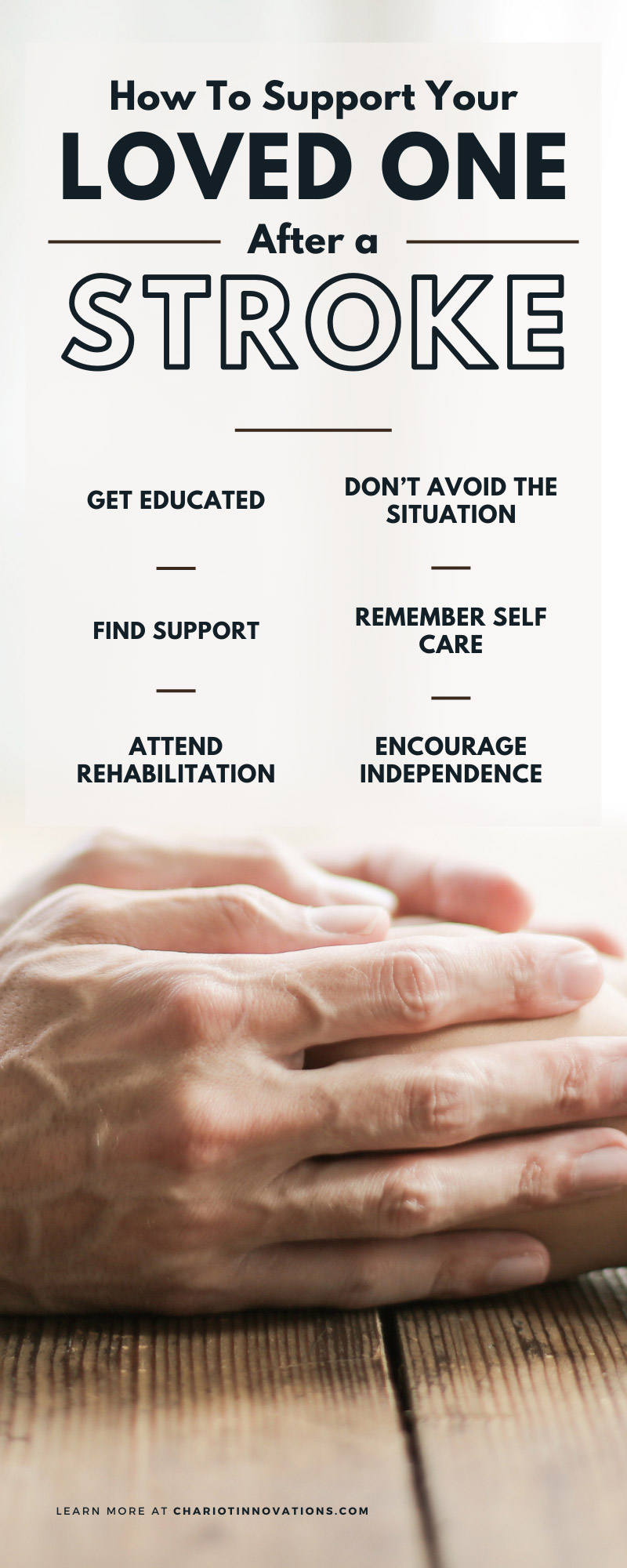Having a stroke is terrifying. If someone you love has experienced one, it probably terrified you as well. Thankfully, they pulled through, and now you can help your loved one move on toward a speedy recovery. In this article, we’ll discuss how to support your loved one after a stroke to better equip you as a caretaker or simply as someone who cares.
Your Loved One Is Emotional
First and foremost, it’s important to keep in mind that no matter how empathetic you are, unless you’ve been through a stroke, you can’t completely comprehend what your loved one is going through. Your loved one’s world was shattered when they heard the news that they had a stroke.
It’s often scary for stroke survivors to go on about their daily life, worried it may happen again. To make matters worse, they may be experiencing any number of symptoms thanks to the stroke.
Be patient and sensitive to the fact that there will be good days and bad days ahead. The good days may include small victories, either mentally or physically. Bad days may be the days when challenges remain challenging. Stay the course and remain positive so your loved one can do the same.
Get Educated
The more knowledge you have about strokes and their effects, the better equipped you’ll be to help. Many hospitals and other medical facilities offer classes for those who care for someone who’s had a stroke. You don’t have to be the primary caretaker to care enough to get educated. Even if you only get to see your loved one who has suffered the stroke occasionally, it’s still helpful to understand what’s going on and how you can help.
Don’t Avoid the Situation
It’s common to want to avoid the uncomfortable situation of visiting with someone after their stroke. You may not be sure how their speech sounds or how different their personality or actions may be.
The best way to get over that fear is to put yourself in their shoes. Imagine if it was you who had the stroke. Would you want people to avoid you? Probably not. You’d need to know you aren’t alone and people who love you are fighting beside you, with you, and for you. To help your loved one heal quickly, show them you know they are still the person you’ve always loved.
Find Support
Your loved one who’s suffered the stroke might find support groups helpful. You, as the one who loves them, also needs support.
There will be days you’ll deal with extreme guilt because you’re frustrated that they aren’t improving as quickly as you hoped. You may also feel frustration over not being able to help as you thought you could.
Support groups with others who share the same feelings are essential for your wellbeing. Contact local medical centers to find local support groups or online resources.
Remember Self Care
When we care for someone who’s fallen ill, it’s so very easy to forget about our own wellbeing. However, what good are you to your loved one if you aren’t taking care of yourself? Helping yourself is necessary in order to support your loved one after a stroke. Helping someone recover requires a lot of patience and energy.
Try these ideas for a little pick-me-up and care:
- Massage
- Pedicure
- Meditation
- Prayer
- Dinner out
- Tea with friends
- A good book
- Exercise
- Healthy eating
You deserve to stay healthy and your loved one wants you to take care of yourself as well.
Attend Rehabilitation
If you are able, attend rehabilitation appointments with your loved one. This is the best way for you to understand where they’re at and how you can help implement rehabilitation at home for them. Arrive prepared with all your questions so the doctor or therapist can answer them.
Practice at Home
After learning with your loved one at rehabilitation, keep practicing at home. You’ll receive instructions while there, about how and what to do at home to keep rehabilitation going. Following instructions is essential for a healthy recovery after a stroke.
Encourage Independence
The goal of rehabilitation after a stroke is to gain back as much independence as possible. You can do this for your loved one by not doing too much for them. This is tougher than it sounds. You care for them and want to help. But sometimes, helping too much can lead them to stop trying for themselves.
Of course, speak with the therapist or doctor about how to judge when you should help and when you should let your loved one be. As an example, if the one who has suffered the stroke has been working hard at getting their shoes tied again on their own and wants to do it, even though it looks like they’re struggling, be patient and allow them to do what they’re comfortable with.
Take Notes
Taking notes is especially important if you’re the one in charge of getting your loved one to and from appointments or if you join appointments to learn how to help them. Keep a small notebook on hand or use your smartphone and bring your notes into appointments to help physicians and therapists understand progress. Use these ideas as you jot down notes between appointments:
- Are they practicing what’s been assigned?
- Has any area progressed or stayed the same?
- Are they struggling emotionally?
- Do assignments seem too easy or too difficult?
Note taking is also helpful for yourself and your loved one so you can both see how far each of you have come.
Strokes usually happen to older people, although it’s impossible to predict if and when strokes will strike. Although it’s frightening, patients can return to a normal, healthy lifestyle with the help of therapy and support.
At Chariot Innovations, we’ve designed the MiraColt as a therapeutic medical device to help support stroke victims, as well as others who struggle with movement disorders. Using the MiraColt to replicate hippotherapy, patients benefit from the movement, similar to a horse’s gait, to achieve greater balance, strength, and confidence. Contact Chariot Innovations for more information about the MiraColt and how it can help your loved one or those you take care of.

